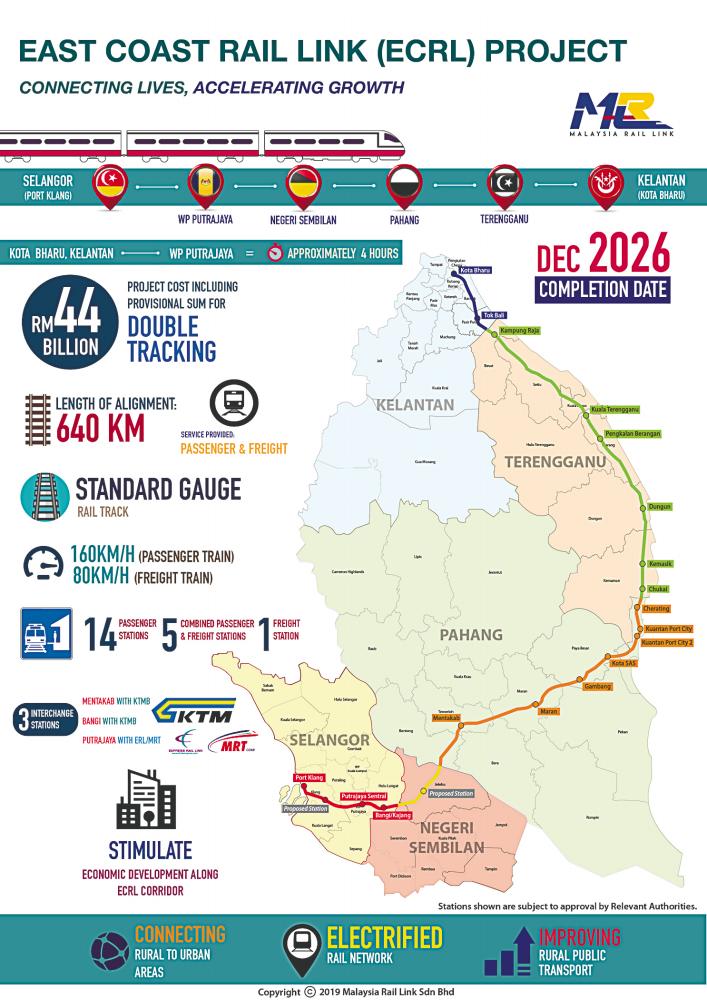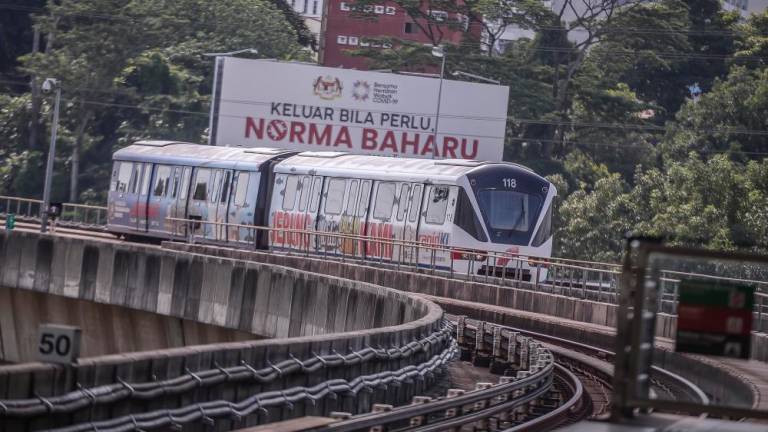PETALING JAYA: The resumption of the East Coast Rail Link (ECRL) project, with new conditions favourable to Malaysia and at a lower price, has received the thumbs up from various quarters.
Master Builders Association of Malaysia (MBAM) president Foo Chek Lee said this would spur the growth of the local construction industry.
Foo said this would also benefit local contractors and builders, especially those based in the East Coast states. “It will help to widen their experience and enhance their capabilities besides generating employment and boosting the overall construction economy and value chain,“ he said in a statement issued today.
He added that the increased participation of local contractors for civil works from 30% to 40% would help reduce contractors’ burden and further elevate their gains.
“However, we hope that the government will ensure that local contractors are given full and complete packages instead of sub-labour works only,“ he said.
Transport expert Goh Bok Yen said that the renegotiation of the ECRL deal between the Malaysian and Chinese governments showed that there was goodwill, understanding and tolerance from both sides.
“The supplementary agreement that was signed between Malaysia Rail Link Sdn Bhd (MRL) and the China Communications Construction Company Ltd (CCCC) is a sign that this is a form of goodwill between the two countries, and that we are actually working towards resolving issues within the framework of a so-called lopsided agreement,“ he told theSun today.
He also said the decision by CCCC to jointly operate and maintain the ECRL with MRL demonstrated their commitment to making sure the project went on without a hitch.
“The fact that we are bringing the Chinese in and holding them responsible for operation and maintenance shows that they cannot just wash their hands off the ECRL once it is completed. They have to carry on maintaining the project. It is like saying ‘lets carry the baby together’,“ he said.
Goh said although the ECRL, like most public transport systems, would likely operate at a loss, it could help to boost economic growth in areas along its route.
“First you are generating growth along the corridor. If you are confident enough and you have a good strategy and plan, you can generate growth, raise employment, increase the national gross domestic product and strengthen your rail-based and port-based industry,“ he said.
He said the fact that the line had been realigned to run through areas such as Jelubu meant that such areas should come up with good overall industrial and economic development plans. “They should take advantage of this railway line,“ he told theSun.
Goh also said the original ECRL line was demand driven as it was taking advantage of the passenger flow, connectivity to the Klang Valley and established industries like Proton City.
But with the line now further down south, it would serve to generate growth where they was still a lot of empty land. “With the land being cheaper, you have the opportunity to open new townships, new development and new industrial area,“ he said.
However, he said this carried a much higher risk, as there was no guarantee that these would materialise, but with the CCCC’s involvement in operation and maintenance, Malaysia would not suffer the full blow of potential financial losses incurred.
Meanwhile, US economist Panos Mourdoukoutas hailed the ECRL deal as a win for Prime Minister Tun Dr Mahathir Mohamad. He pointed out that Mahathir had forced China back to the negotiating table after cancelling the ECRL in August.
“The new deal is a big win for Mahathir. He made good on his election campaign promise to re-negotiate China’s investments in the country, which served the interests of Beijing more than they served the interests of Kuala Lumpur,“ he wrote in a Forbes opinion piece on Saturday.
He also said China’s many infrastructure projects weren’t economically viable, as they were built at inflated costs and would leave countries involved heavily indebted to Beijing, and it was a debt trap that Mahathir was trying to avoid.
“In dealing with China, Malaysia has dared to do something Sri Lanka, Pakistan and the Philippines didn’t: Bring Beijing back to the negotiating table to cut the cost of investment projects assigned to Chinese contractors,“ he said.














